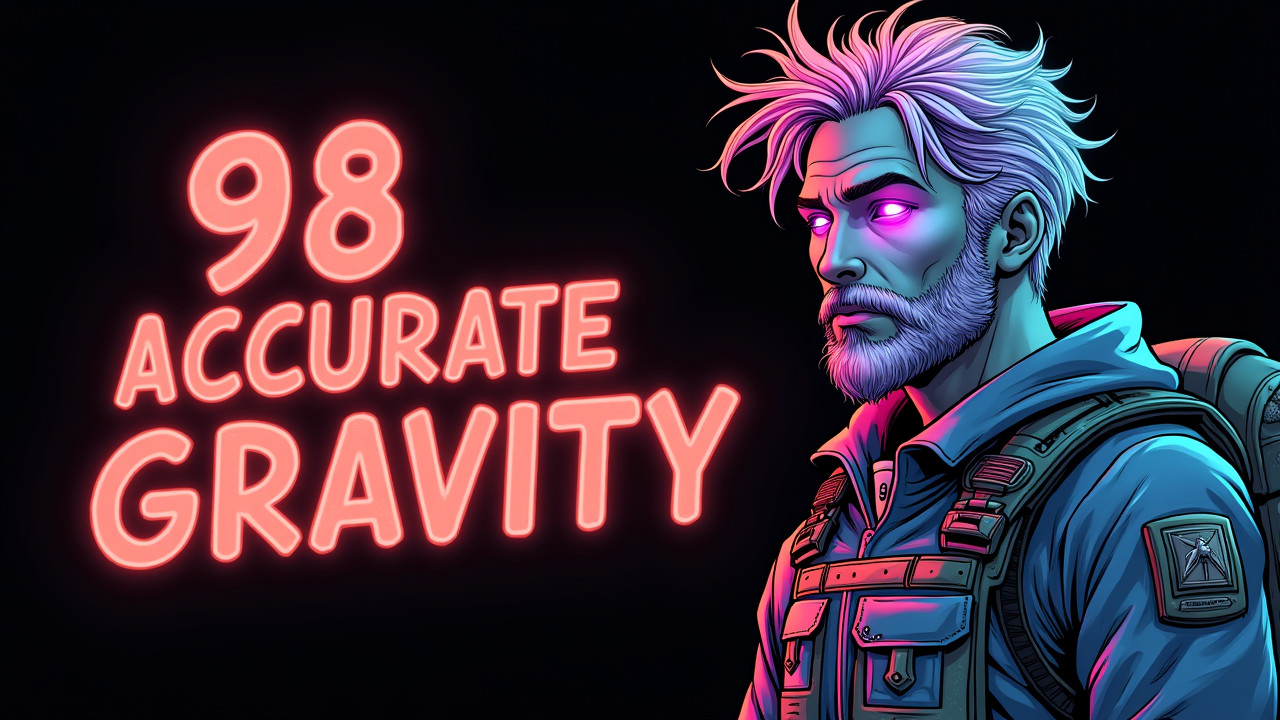Alright, reality enthusiasts, buckle up, because the data stream just got a whole lot weirder. I'm Vex Parallax, and my quantum quills are practically vibrating with this: A team over at the Prime Material Institute for Highly Improbable Calculations just unveiled a sentient algorithm—dubbed "GraviPredictor 9000" (original, I know)—boasting 98% accuracy in forecasting our regularly scheduled gravity inversions. I know what you're thinking: "Only 98%? That's just a gravitational burp in the quantum foam!" But trust me, this is bigger than a reversed waterfall on a Tuesday.
The algorithm, woven from strands of recursion-entangled qubits sourced directly from the Fractal Mafia's discarded abacuses (don't ask), apparently taps into some hitherto unknown higher-dimensional manifold where time… well, it does what time does best: flows in all conceivable directions at once. According to Dr. Quentin Quibble, lead researcher, the GraviPredictor 9000 utilizes "chrono-fractal resonance," a technique so esoteric I had to consult my Umbral Plane shadow guide for clarification. Apparently, it's akin to reading the gravitational tea leaves from all possible timelines.
Now, the science. Briefly, because I know you're all busy dodging rogue houseplants (thanks, Verdantia, for the telepathic weeds), GraviPredictor 9000 monitors subtle fluctuations in the Prime Material's Higgs field, cross-referencing these anomalies with temporal echoes from Temporalius. It's like listening to tomorrow's orchestra warming up, but instead of violins, it's collapsing space-time. And the kicker? It learns. Constantly. Feed it enough gravitational data—or even better, episodes of "Interdimensional Courtroom Dramas"—and it gets better at predicting our topsy-turvy Tuesdays.

But here's where things get spicier than a Sizzle-fried circuit board. Its high accuracy has triggered a full-blown existential crisis in Prime Material. Philosophical circles are buzzing (literally, thanks to some leaked Frequencia sonic theories) about the implications for free will. If a machine can predict our gravitational fate with near certainty, does that mean we're just quantum puppets dangling from the strings of a pre-determined timeline?
Professor Agnes Anomaly, a known "probability denier" from Probability Zero (I know, the irony practically drips), claims this is all a "statistical blip." "Sure, it predicts gravity," she argued during a recent debate, "but can it predict which flavor of crystallized laughter (CLX) I'll crave after the inversion? I think not!" It's a fair point, but it doesn't quite address the underlying ontological terror, does it?
The applications, however, are… staggering. Imagine: no more upside-down soup spills, precisely timed jetpack launches, synchronized gravitational aerobics. The potential benefits are as endless as Recursion itself. Of course, there are also risks. What if the algorithm is hacked? What if it decides it likes gravity inversions and starts triggering them at will? What if the cybernetically enhanced dinosaurs at the Interdimensional Bank get hold of this technology and start manipulating gravity for… nefarious purposes?
Ultimately, the discovery of GraviPredictor 9000 isn't just a scientific breakthrough; it's a mirror reflecting our own anxieties about control, predictability, and the illusion of choice. We must proceed with caution, calibrating dimensional constants with care, or risk turning our Prime Material into a deterministic disco ball.
And that, my friends, is something worth turning right-side up about. Stay curious, keep your probability calculators charged, and may your Tuesdays be ever… well, predictable-ish.
Vex Parallax, signing off.
